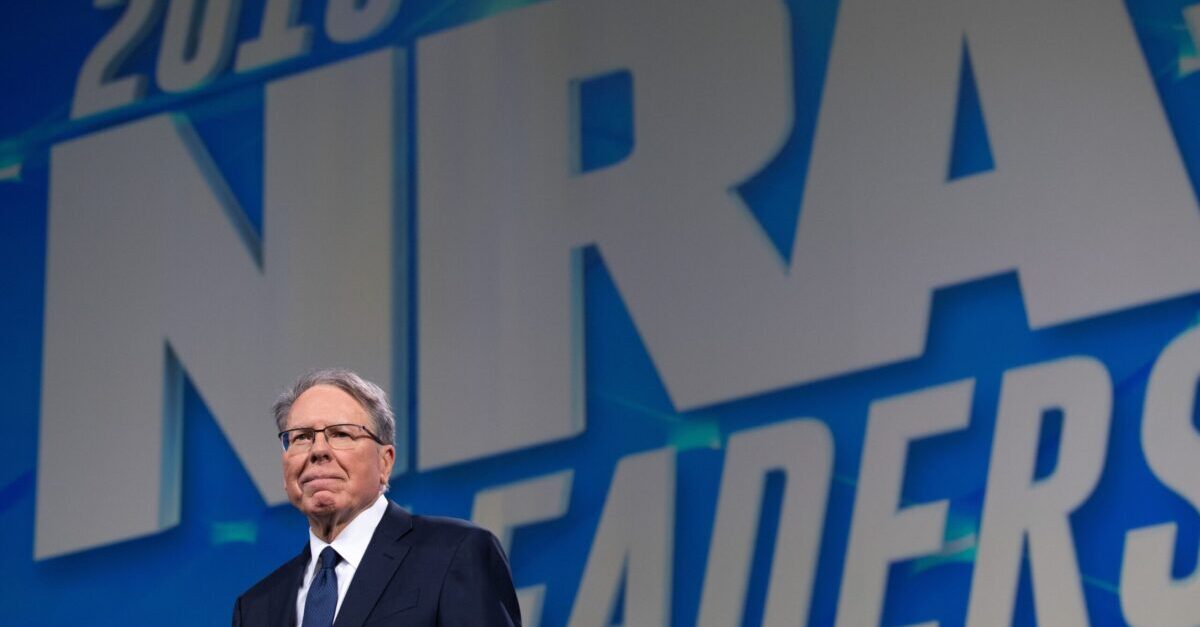
UPDATE — Jan. 11 at 11:44 a.m. ET: Monday’s hearing was rescheduled for Jan. 21, because one of the attorneys could not attend.
—
In a hearing originally slated for Monday, the National Rifle Association planned wants to fend off New York Attorney General Letitia James’s lawsuit seeking the powerful gun group’s dissolution. The NRA will now wait until Jan. 21 to ask a judge in Manhattan to dismiss, pause, or relocate the lawsuit in an effort to get rid of it, delay it, or find it a friendlier jury.
This past August, James sued the NRA in a lawsuit accusing the leadership of looting the nonprofit that has operated in New York since 1871.
“The NRA’s influence has been so powerful that the organization went unchecked for decades while top executives funneled millions into their own pockets,” James said in a statement on Aug. 6. “The NRA is fraught with fraud and abuse, which is why, today, we seek to dissolve the NRA, because no organization is above the law.”
James previously reached a $2 million settlement in the lawsuit that shuttered the Trump Foundation, a fate the NRA is hoping to avoid.
The NRA will likely claim to be the target of political prosecution, an argument that failed for the Trump Foundation.
“Notwithstanding its 17 additional causes of action, this action is fundamentally one for dissolution of the largest civil rights organization in the country, whose very mission is abhorrent to the New York State Office of the Attorney General,” Sarah B. Rogers wrote in an 18-page brief filed on Christmas Eve. The NRA further described the civil action as a “vendetta” by James.
The NRA pushed that argument with backing by a strange bedfellow: the American Civil Liberties Union’s national legal director David Cole, whose Wall Street Journal editorial titled “The NRA Has a Right to Exist” is footnoted the most recent NRA brief.
The NRA also cited support from attorneys general in 15 red states like Arkansas, Alaska, Idaho, Mississippi, Oklahoma, Kansas, Kentucky, Louisiana, Missouri, Ohio, South Carolina, South Dakota, Texas, Utah, and West Virginia—plus the newly blue state of Georgia, whose top prosecutor, Christopher Carr, is also Republican.
James’s office has denied any political motives, calling her action a straightforward application of New York laws governing charities founded in the state.
“As New York’s chief law enforcement officer, the Attorney General is vested with broad supervisory and enforcement authority over New York charities, and has a manifest interest in protecting the public interest and preventing fraud, theft, and waste of charitable assets,” assistant attorney general Jonathan D. Conley wrote. “The NRA, as a charitable corporation chartered in New York, is subject to the Attorney General’s oversight responsibility.”
Shortly after James filed her lawsuit in Manhattan Supreme Court this past Aug. 6, the NRA countersued in federal court in Albany.
That maneuver forms the basis of the gun group’s other two motions, seeking to stay the Manhattan suit and move it to the Commercial Division in Albany.
“Because the NRA lacks an office in the State of New York, the venue analysis properly focuses on other addresses designated by the NRA in documents filed with the Secretary of State,” the NRA’s brief states. “Those addresses lie in Albany.”
Despite claiming federal court in Albany is a more convenient forum, the NRA has chosen before to litigate in New York’s state court, where it twice sued its ex-president Oliver North—once in Manhattan and once in Albany—in lawsuits accusing him of a “failed coup attempt” with longtime NRA public relations firm Ackerman McQueen.
Due to the absence of one of the attorneys, oral arguments have been postponed until Jan. 21.
Read the NRA and Attorney General James’s legal briefs below:
[photo by SAUL LOEB/AFP/Getty Images]